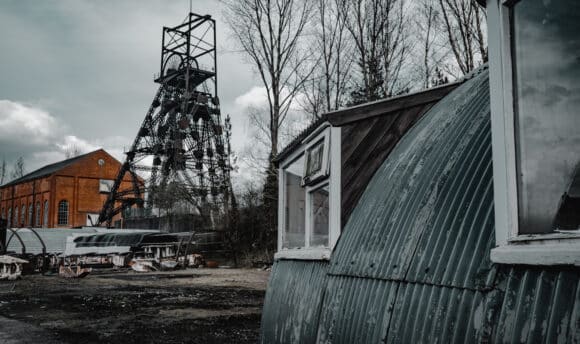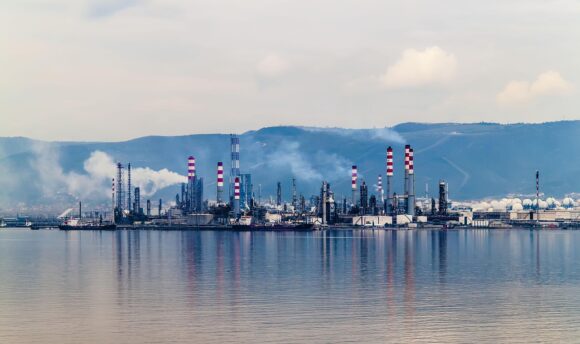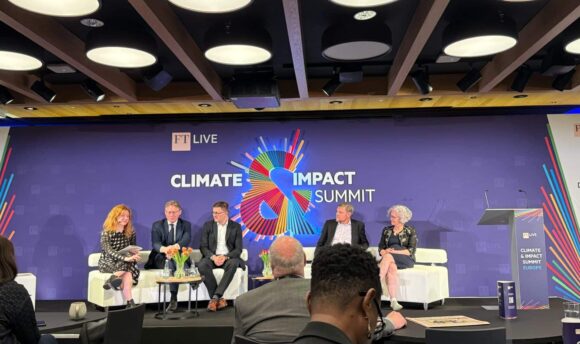Insure Our Future welcomes Hannover Re’s updated oil and gas re/insurance policy and its exclusions on new oil and gas development transport and storage. This policy goes a long way towards implementing the findings of the IEA and it indicates to other insurers and financial institutions the big urgent steps required. The need to also phase down oil and gas production in line with preventing a rise above 1.5C in average global temperature remains, but Hannover Re’s policy alongside that of Swiss Re’s policy have set a new floor for the insurance sector.
For clarity, find an extract from Hannover Re’s 2021 Annual Report (pg 74-75) that details out its updated oil and gas policy:
Fossil fuels are considered to be one of the major drivers of climate change. With a view to countering this and facilitating the transformation to a lower carbon economy, Hannover Re encourages the expansion of renewable energy sources in property and casualty reinsurance that range from wind energy (both onshore and offshore) through photovoltaic energy and hydroelectric power to geothermal energy.
At the same time, Hannover Re is consistently seeking to reduce its exposure to fossil fuels. The goal is to no longer cover any risks connected with the mining of and power generation from power plant and thermal coal by the year 2038 in the entire portfolio of property and casualty reinsurance business. Work began in the year under review on the elaboration of our internal positioning for the property and casualty reinsurance sector. This will flesh out the approach in greater detail and address further issues (such as oil and gas). The position paper is applicable to both facultative and obligatory business.
Reinsurance covers for individual risks are written in facultative reinsurance, i.e. the treaties can be allocated to specific projects or policyholders. In this segment, reinsurance has no longer been provided for planned new coal-fired plants or thermal coal mines since April 2019. Moreover, from February 2020 onwards our facultative division has excluded any new business connected with thermal coal or the associated infrastructure. Thermal coal infrastructure encompasses mines, coal-fired power plants and facilities as well as port and rail operations allocable exclusively to the coal industry. In the case of mixed groups, companies are excluded that generate more than 30% of their revenues from activities in thermal coal.
In addition, since 2020 the facultative division has no longer accepted any new individual risks for companies that hold 20% or more of their oil reserves in oil sands and it excludes oil sands extraction and processing operations. Oil sands extraction and processing encompass the extraction of bituminous sand (both in surface mining and in the form of in-situ extraction) from bitumen, refinement into synthetic crude oil, further processing of this synthetic crude into petroleum products and the associated transportation by pipeline or rail.
The exclusions for oil and gas were expanded in the year under review. From mid-2022 onwards the facultative division will no longer take on any new covers for project policies associated with the exploration and/or development of new oil and gas reserves (upstream) or for project policies that exclusively support the transportation and storage (midstream) of new oil and gas reserves.
Complementary to this, the facultative division adopted an ESG manual in the year under review that addresses other environmental concerns. Transactions are to be declined if they may entail damage to protected areas classified as IUCN category 1a / b, wetlands protected under the Ramsar Convention or world cultural heritage sites. Furthermore, the facultative division no longer accepts any new risks connected with projects for the extraction of oil and gas in Arctic regions. These are defined as the zone around the Arctic Circle which runs in a circle of latitude 66.34° north of the Equator. This includes the Arctic National Wildlife Refuge (ANWR) in the United States. In addition, no risks are written that are connected with the development of new oil and gas deposits in deepwaters below 5,000 feet. The facultative underwriters at all locations were already provided with training in ESG topics and the ESG manual in 2020.
In obligatory reinsurance, large-volume portfolios with sometimes heterogenous contents are accepted. We are engaged in talks with our customers in order to obtain an overview of the CO2 intensity of the business ceded to us. In 2021 Hannover Re joined the Net-Zero Insurance Alliance (NZIA) so as to work with other participants on the development of metrics and targets. On this basis we shall identify measures for the progressive reduction of our carbon footprint. In the year under review Hannover Re became a signatory to the UN Principles for Sustainable Insurance (UN PSI).
Great and timely news: #HannoverRe stops reinsuring new oil and gas projects. 👏 Hannover is not a big player in oil and gas but @Allianz, @MunichRe and @SwissRe are. Will they now follow suit? 👀 #InsureOurFuture https://t.co/JXnl8qMEKI pic.twitter.com/gmkv0M11tR
— Peter Bosshard (@PeterBosshard) March 10, 2022



